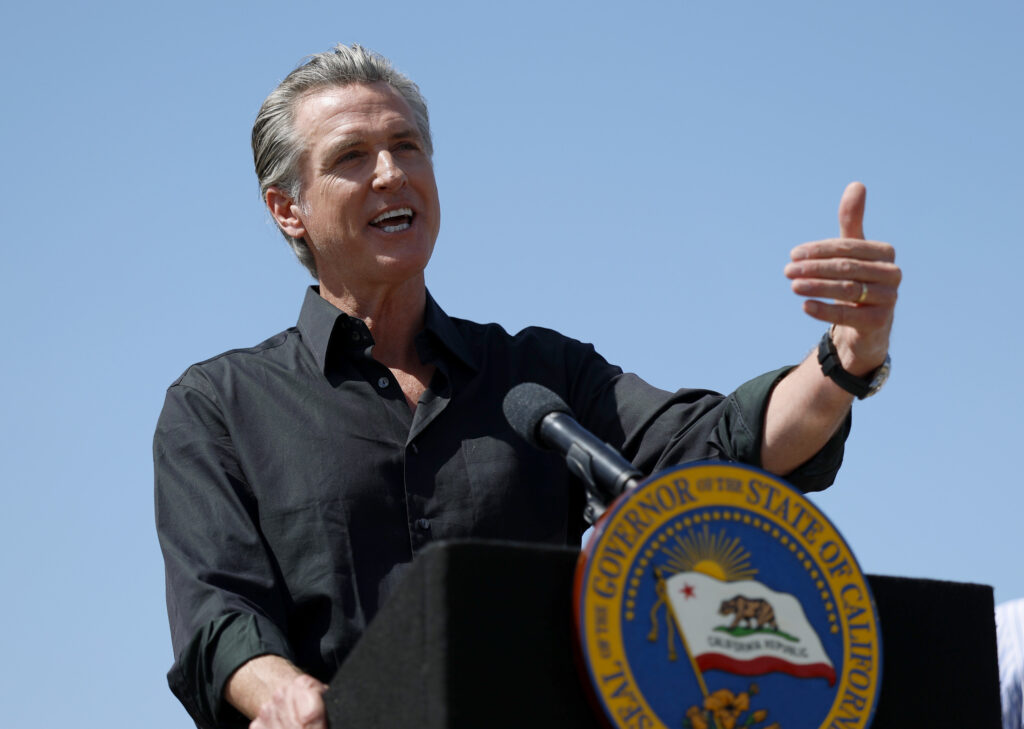California Governor Gavin Newsom signed a $321 billion budget on Friday that closes a $12 billion deficit by scaling back several progressive priorities, including a landmark health care expansion for undocumented immigrants.
Newsweek reached out to the governor’s office via email on Saturday for comment.
Why It Matters
The budget agreement between Newsom and Democratic leaders marks the third consecutive year the nation’s most populous state has been forced to reduce funding for programs championed by Democratic leadership.
The governor and legislative leaders framed the budget as a response to what they describe as economic challenges stemming from President Donald Trump’s tariff policies, immigration crackdowns and rising costs tied to increased enrollment in Medi-Cal, California’s state-funded healthcare program for low-income residents that was expanded last year to include undocumented adults as part of the state’s universal healthcare goals.
The cuts to immigrant health services represent a significant retreat from California’s universal healthcare ambitions, affecting hundreds of thousands of residents. With projected annual deficits of $17-24 billion in coming years and potential federal revenue losses of $16 billion, the state faces sustained financial pressure that could force deeper cuts to essential services.
What To Know
The budget addresses the deficit primarily through state savings withdrawals, borrowing from special funds, and payment delays rather than implementing new taxes on families or businesses. The most significant immigrant health program changes target Medi-Cal, the state’s Medicaid program.
Starting next year, the Golden State will halt new enrollments for undocumented adults in Medi-Cal, effectively capping the program’s growth. Additionally, beginning July 2027, the state will implement a $30 monthly premium for immigrants currently enrolled in the program, including some with legal status, affecting adults under 60 years old. These changes represent a scaled-back version of Newsom’s original proposal from May, which would have imposed deeper cuts to the landmark program that began just last year.
The Medi-Cal modifications mark a retreat from California’s ambitious universal healthcare expansion, which had made the state a national leader in providing comprehensive health coverage regardless of immigration status. The program cuts come despite California’s role as home to the nation’s largest immigrant population, with undocumented residents comprising a significant portion of essential workers in agriculture, construction, and hospitality sectors.
Healthcare cuts extend beyond immigrant services, eliminating $78 million in mental health phone line funding that served 100,000 people annually and removing dental service funding for low-income residents in 2026.
However, lawmakers successfully preserved funding for in-home care services, Planned Parenthood, and reproductive health programs.
A Napolitan News/RMG Research poll released in May, conducted between February 10–12 among 800 registered California voters, found that 60 percent of Californians think illegal immigrants living in America should not be provided with taxpayer funded health care.
The poll also found that 72 percent believe illegal immigration is harmful to the country. The poll had a margin of error of ±3.5 percentage points. RMG Research is a Republican-leaning pollster.
What People Are Saying
Governor Gavin Newsom in Friday’s press release announcing the balanced budget: “As we confront Donald Trump’s economic sabotage, this budget agreement proves California won’t just hold the line — we’ll go even further. It’s balanced, it maintains substantial reserves, and it’s focused on supporting Californians — slashing red tape and catapulting housing and infrastructure development, preserving essential healthcare services, funds universal pre-K, and cuts taxes for veterans.”
Speaker of the California State Assembly Robert Rivas in Friday’s press release: “This is an incredibly difficult time for Californians. Trump is undermining our economy with reckless tariffs, harsh cuts, and ICE agents terrorizing our communities. At a moment when so many are already struggling, he’s adding fear and instability. In contrast, Democrats have delivered a budget that protects California. It cuts red tape to build more housing faster — because housing is the foundation of affordability and opportunity.”
He added: “It preserves critical investments in health care, women’s health, education, and public safety. And it honors our commitment not to raise taxes on families, workers, or small businesses. In unprecedented times, under painful circumstances, Democrats are delivering for Californians.”
Republican state Senator Tony Strickland told reporters prior to the vote on Friday: “We’re increasing borrowing, we’re taking away from the rainy day fund, and we’re not reducing our spending.”
He added: “And this budget also does nothing about affordability in California.”
Senate President Pro Tempore Mike McGuire in Friday’s press release: “The State is delivering a responsible on-time budget in a challenging year focused on fiscal restraint and investing in the people and programs that make this State great. This budget prioritizes record funding for our kids and public schools, protects access to health care for millions of the most vulnerable, and will create more housing at a scale not seen in years.”
He added: “Thanks to this budget agreement, the state will help get more folks off the streets and into permanent shelter, and we’ll expand the ranks of CalFire, deploying hundreds of additional full-time CalFire firefighters, which will save lives and make us all more wildfire safe. And this agreement helps prepare our state for the ongoing chaos and massive uncertainty caused by the Trump administration. Thank you to our Senate Budget Chair Scott Wiener, Speaker Rivas and Governor Newsom and their staffs for their hard work for the people of California.”
Representative Pramila Jayapal, a Washington state Democrat, wrote on X in May: “Immigrants aren’t making health care more expensive – Republicans are. Trans people aren’t making health care more expensive – Republicans are. Poor people aren’t making health care more expensive – Republicans are.”
What Happens Next
The budget’s implementation depends entirely on lawmakers passing housing legislation (AB 131 or SB 131) by Monday’s deadline, or the entire spending plan becomes void.
Reporting from the Associated Press contributed to this article.
Read the full article here
